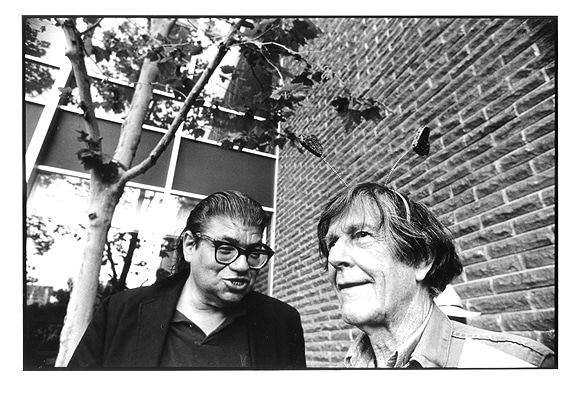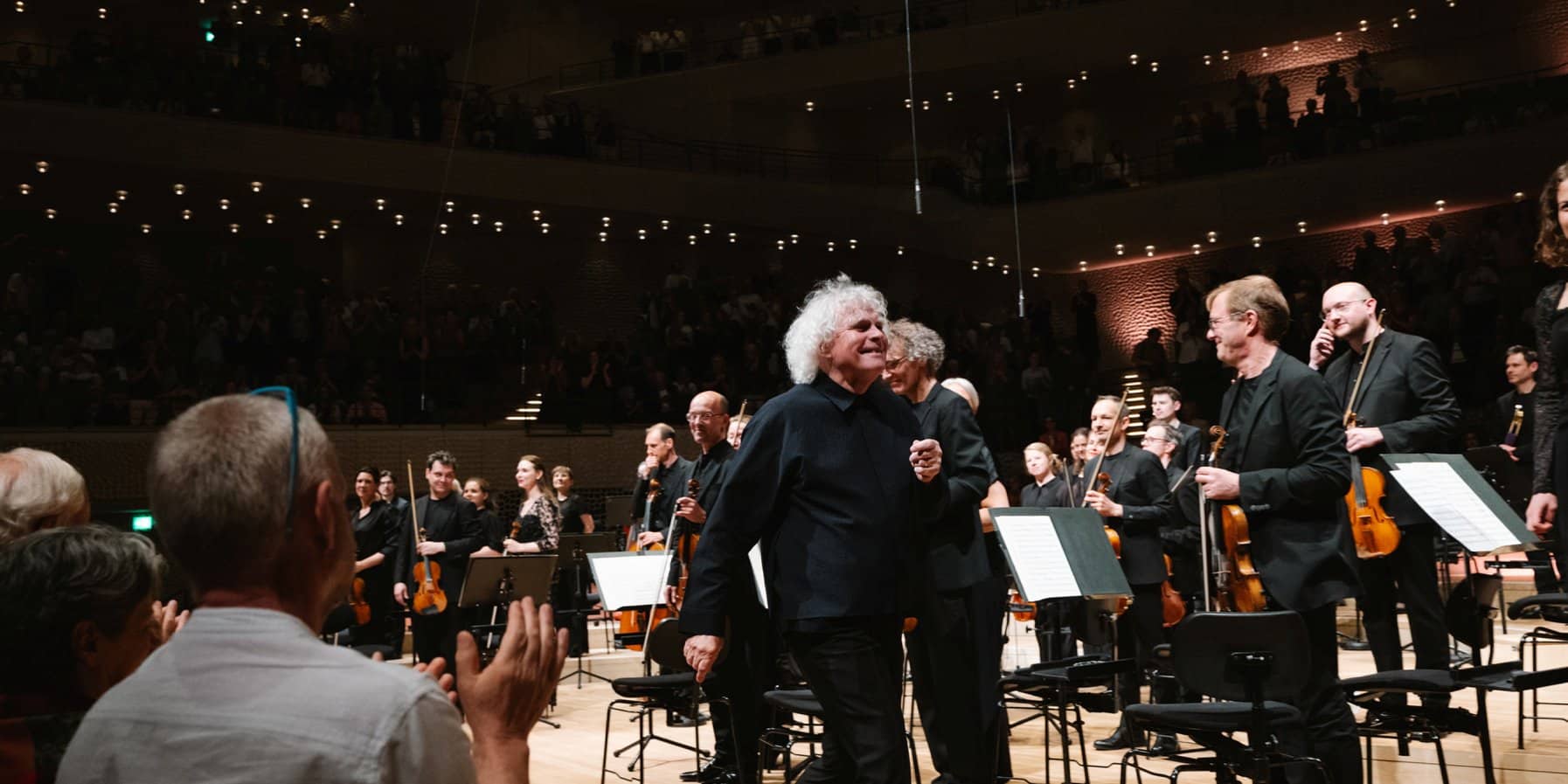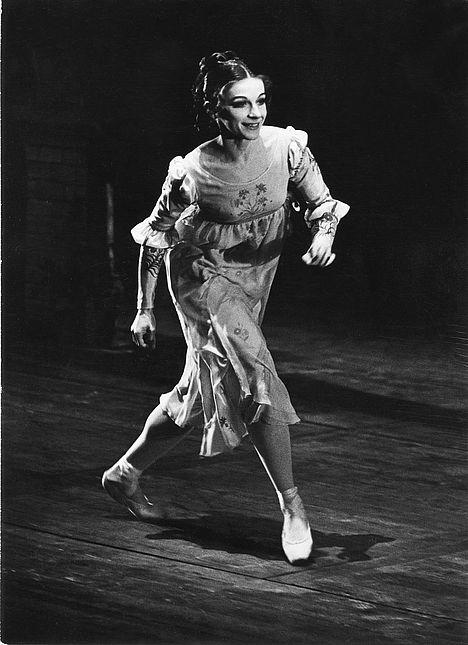When John Cage blew up at Buffalo’s gay scene
mainFrom a 2016 article by Jeff Simon of the Buffalo News, reprinted with his permission:
The most dramatic thing I ever covered for this newspaper was a shocking explosion of temper and bewilderment by Cage at a seminar during Morton Feldman’s first “June in Buffalo” festival. What enraged Cage was a performance of some pieces from his “Song Books” by the S.E.M. Ensemble in which ensemble member Julius Eastman “brought out a young, blond man and a young black woman and proceeded to spiel out a broadly funny new ‘system of love’ with virulent homosexual overtones. At the end of it, the young man was undressed and the subject of the performer’s (Eastman’s) gay advances.”
That’s my description of the event according to Renee Levine Packer in her new book with Mary Jane Leach, “Gay Guerilla: Julius Eastman and His Music” (University of Rochester Press, 246 pages, $34.95). I had reviewed that concert.
“Cage was furious,” Packer writes in her biography of Eastman. “In his seminar the next morning, he was visibly agitated, stamping around the room, breathlessly raising his voice in an uncharacteristic way, even pounding the piano with his fist. He expressed disappointment and immense frustration that his work could have been so misunderstood, especially by such experienced performers, and in a place where he thought surely he could rely on a knowledgeable and sensitive reading.”
His work, Cage said at the seminar I later wrote about, called on performers’ huge freedom but only if what they did was in the philosophical spirit of Henry David Thoreau. Eastman’s improv sex comedy in provocative comic service to gay liberation was hardly that.
Anyone who had marveled at Cage’s writings in his books “Silence” and “A Year from Monday” couldn’t help being shocked that a man who had devoted so much of his life to contemplative equanimity, could explode so helplessly in such rage. The emotional distance between what I knew of Cage’s philosophy and his fury that day was the most dramatic gap I have ever witnessed after encountering a major cultural figure. I was witnessing in Cage the dark side of the moon….
Read more here.






Someone call the police.
I usually do, whenever I see ‘John Cage’ on the concert program.
Cage him!
+ 1
I don’t find Cage’s anger so unexpected. There are other instances of him strongly denouncing what he considered to be misunderstandings or abuses of his music. He developed very unique concepts and was more than ready to defend them, even with indignation. He consistently insisted that his scores, even if composed with chance operations, and seemingly without any musical characteristics, be performed with great precision and trueness to his scores. The idea was, among other things, that the precision and concentration would lead the performers and public to listen more deeply. He did not want people to see his works as unserious, absurdist collages, but as rigorously organized sound. The described scenario involving Eastman would naturally greatly contradict Cage’s philosophy, as would the presumption that Buddhist philosophies preclude the expression of vehement anger when one’s artistic work is abused. Cage was anything but dispassionate.
I can speak with some confidence on the point about Buddhism, or at least from the perspective of Mahayana (Zen): ego is always angry, but not all anger is of the ego. That is to say, anger is a natural emotion; it only becomes unnatural when it is twisted into rage and held; then it becomes the fire that burns but gives no light. Any expression of anger that is delivered and let go of (“non-attachment”) is not merely natural but developmental. Some of my own best moments of awakening in the zendo (Zen temple) have come from a roshi’s (Zen priest) or jiki-jitsu’s (sort of a priest’s assistant) barking at me or another. Cage probably understood this.
Excuse my pedantry, but no one or no thing can be “very unique”. Unique qualifies itself.
How could something that is in itself a misunderstanding and a abuse of the art form, possibly be misunderstood and abused?
http://www.youtube.com/watch?v=hp_XVXdqKUw
“The idea was, among other things, that the precision and concentration would lead the performers and public to listen more deeply. He did not want people to see his works as unserious, absurdist collages, but as rigorously organized sound.” Music is not merely the sound it makes, that is what we conclude to be a lack of musicality in people, if such people claim that music is the sound it makes.
It’s all the recordings’ fault – people treating musical sound in a fetishist way form the one side, and ignoring the physical implications it has in a room in relation to its spiritual message on the other side.
For the simple reason that artists don’t want people adulterating their abuses.
How very contemporary!!
Music isn’t sound. It’s a form of thought. Sound is merely how it is conveyed.
Brilliant comment!!!!
A form of thought AND a form of communication. Maria Callas once said in an interview that song is the highest form of communication. I do not know whether that is so but certainly every culture, unless they deliberately suppress it, use music and song as part of religious observance. That is, in order to connect in some way to some higher unseen power
Cage collected his ideas in a book that is a great, funny read (”Silence”, published in 1961). His other books that came later provided only repetitions or variations of the same ideas, each new book with more and more gobbledygook than the previous one, yes I have the feeling that he insulted his readers more and more flagrantly in each book – if you didn’t get it the first time you’ve got to pay to have it explained more and more plainly that everything is “Music” and in “Music” (almost) everything goes.
He would surely agree with the statement that music isn’t sound but a form of thought that is conveyed by sounds, that idea summarizes 4’33’’ and a lot of other Cagean products. In a sense, this idea makes his products conceptually superior to Classical music, since sounds are just a physical phenomenon with severe spatial limitations, sounds do not propagate in vacuum, while thoughts don’t need to be projected in space to provide an esthetical experience, just like the physical object (the “Mona Lisa”, for example) that becomes a work of Art in the eyes and brains of the spectator (cf. Duchamp).
Cage did not explore the idea that thoughts of music are superior to the performance in its ultimate argument – Beethoven, the man who composed his arguably best works when he was deaf – but the reason was probably that he disliked Beethoven deeply (as was evident in his Beethoven vs. Satie controversy).
The idea that Cage’s “products” could be ‘conceptually superior’ to classical music, is in itself a ‘conceptual thought’, i.e. nonsense and lacking any rational context. Therefore quite Cagean and Duchampian and, with all due respect, entirely charlatanesque.
Why respect? They did not respect anything, even if they avoided som themas (in Cage’s case, any reference to homossexuality – by the way a commnet that is relevant to the article above).
Indeed, but the thought has to be a musical thought, not a purely philosophical thought or a simplistic, silly thought like the thoughts John Cage appeared to prefer.
John Cage, like many anartistes of the 20th Century (Duchamp’s term, not mine) – had a lot of philosophy and no substance (In Cage’s example, quite literally). Works like 4:33′, but also others, are what I would call “conceptual music” – but it isn’t music at all, and as a result – John Cage isn’t a composer.
As far as I know, concerts are meant for the performance of music, usually written by composers. Cage lost nothing there.
Maybe it’s time that Cage and his buddies be respected for what they are (conceptual generators of discussion), but not confused and mistaken to be what they aren’t.
Cage argued that one person’s music is another person’s noise. Or that one person’s noise is another person’s music. For better or worse, the idea has been widely accepted, and became a useful concept in our very pluralistic modern world. In fact, his ideas came close to defining new developments in classical music in the second half of the 20th century. But I personally would agree that he made far more contributions as an aesthetic theorist than as a composer. (But of course it would be pointless to discuss these ideas in a forum like this.)
Completely pointless. Sadly.
Cage was not a composer but a decomposer. And it is simply not true that one person’s music is sound to another person and the other way around. Someone who does not understand what classical music is, only hears the sound it makes, and these two modes of perception are not comparable entities, in the same way that the presence and absence of something are not comparable entities. A wider acceptance of such nonsensical ideas like sound = music simply betrays the lack of understanding of what culture is, and of course that went together with the misunderstood democratization processes of the last century’s egalitarian world view which gave many people the idea that ‘my opinion is as good as yours’ whatever they may be.
The argument “one person’s noise is another person’s music” is completely unfounded and I am surprised it haven’t been contested properly.
Putting music on paar with noise is like putting language on paar with gibberish (let’s say, non-language), and thus if we substitute the words we get the following:
“One’s person’s gibberish is another person’s language”
And this is a tautology, as it is true for any language one speaks and the other doesn’t. But the particularity of humans, which is wonderful, is that we can recognize intuitively that foreign languages we don’t speak are languages at all.
The phrase “it’s all geeek to me” portrays this.
But in this case, the “other” language is a natural human language, with all that it implies (see Chomsky). The most important aspect of this is it being a codex of rules of conduct, the agreement upon which enables the linguistic communication. The particularity of such language is also that it simultaneously contains the key to decipher its rules: a baby exposed enough to a human language learns it spontaneously, he “makes sense” of the sounds by merely being repeatedly exposed to them.
Before a baby learns a language, they speak gibberish – which is their immediate mode of communication, which is defined by it being a non-language.
In that sense, language is obviously a developmentally superior mode of communication to gibberish. Although it comes out of it, it is “better”.
Music, any “music” which is spontaneously recognized as such, works in this sense similarly to natural human languages. It has these commonly agreed upon inner rules enabling communication, a code that enables them to be absorbed by repeated exposure, and a quality to it that discerns it obviously from “noise”.
Making noise music is making gibberish language.
The horrendous consequences of this cannot be overestimated.
Right in.
Thanks for this argument.
And those Consequences are all around us. Anyone who’s missed the latest installment of the BBC Worldservice’s “In the Studio” will get a triple or quadruple dose.
All true.
The tonal dynamics of Western classical music have developed over many ages, and their core remained the same, only their range has been extended. The energies which ebreath life into gregorian chant are the same which drive the narratives of Mozart or Debussy forward, and the wide range of ways of unfolding offers infinite possibilities of variation and personal interpretation, to which we thank the extremely varied repertoire. When a crank like John Cage comes around, who clearly had no idea about how music works, and applies some misunderstood eastern philosophical ideas on his distorted view of music, of course you get nonsense. But in the sixties such nonsense was most welcome because it seemed to fit into the superficial ideas of hippie world views and did not require a true understanding of music, and it was humorous. (I personally think he ate far too much of certain types of mushrooms, which was his hobby.)
I feel like I’m in a time warp – posting an old article (slow news day?) and the comments seem to have been written in another era.
It’s called ‘progress’.
My ideal world: technology as in the 1970’s and a mindset as in the 1870’s.
Is seemingly belonging to another era a measure to an argument’s validity?
We know that some 2000 years ago 2 + 2 = 5, which caused the decline and fall of the Roman Empire. We better be careful with historic evidence.
Hi Mary Jane!
Yup, that’s par for the course around here.
Well, the funny thing about all those people who like to denounce Cage as being about ideas and not music or lacking substance or whatever, is that we’re talking about him and his music pretty regularly. How often are we talking about Roger Sessions, Sam Barber, or even Boulez’s music? 4’33” is performed quite often, as are many of his wonderful works such as Sonatas and Interludes. Name another composer who worked from 1940 to 1980 that we are talking about as much as Cage. As for this “shocking” report of his anger over Eastman’s performance, anyone who knows anything about Cage knows that he was very particular and fairly opinionated. He also knew a great deal about music. Folks somehow think he knew little about music and cared little about it, but the fact is just the opposite.
There are millions of people who know very much about music but whose understanding is considerable less so.
People are still discussing Hitler, the nazi period, about which movies are made and docu dramas, again and again, but we could not really decide that THEREFORE Mr Hitler’s contribution to civilization must be worthwhile. The same goes for pop stars, whose fan base far exceeds that of, say, Paavo Järvi. It does not mean that pop stars contribute more valuable things to humanity. Etc. etc.
The reason that Cage is still, for a great number of musically-illiterate people, a subject to seriously ponder about and even ‘perform’, is because the people for whom music is merely the sound it makes, far outnumber the people who understand the art form. Almost all children make drawings, but that does not mean they all have to be included in the Louvre.
Cage is for conceptual people, disconnected from reality and protected from knowledge and understanding of classical music.
Interesting comment John Porter. People also talk a lot about Trump. And what a weird triumvirate of composers you cite. One of these just does not belong. That would the only one of the three who composed at least one work that is a staple of the standard repertoire, beloved of millions.
Nor can I imagine that either the pope of the new music church, or one of that movenent’s original religious policemen, would be too chuffed being mentioned in the same sentence as Samuel Barber.
An interesting roll-call of names.
The odd one out is infact Boulez. His name is mentioned on here and there’s usually a flurry of polarised comments (likewise, Karajan) but the same wouldn’t be true of Barber and Sessions, who are rather retro in their different ways. There’s nothing particularly provocative about them.
By the way, Cage’s music stands up rather well in terms of sound. Try ‘Dream’ or some of the ‘Sonatas and Interludes’ The latter have an insect-like energy which can be rather captivating. Please listen atleast three times to one of them.
These are early works when he still tried to feel his way into the musical field. When that did not offer much perspective, he began to eat mushrooms and tried to read eastern philosophy.
Barber and Sessions feature as pianists on the not particularly incisive version of ‘Les Noces’ ,conducted by the composer. A chance to hear it in English though….